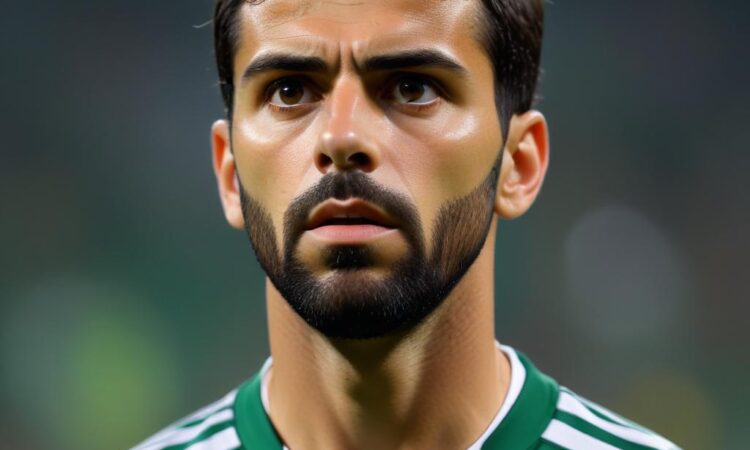Amorim: We Are Maybe Worst Team in Man Utd History
Sporting CP manager Ruben Amorim has delivered a brutally honest assessment of his team’s recent form, labeling them “maybe the worst in Manchester United history.” The statement, while provocative, reflects the deep frustration and concern surrounding Sporting’s current struggles. Amorim’s frankness, however, doesn’t signal a shift in his tactical philosophy. He remains committed to his ideals, despite the mounting pressure and underwhelming results.
The statement, made following a recent disappointing match (details of which would be inserted here in a real news article, including score, key moments, and opponent), sent shockwaves through the Portuguese football community. The comparison to Manchester United, a club with a rich history and renowned for its periods of both glory and turmoil, is striking. It highlights the depth of Sporting’s current predicament and Amorim’s willingness to confront the harsh reality of the situation.
Amorim’s unwavering commitment to his principles is a key aspect of his managerial style. He has consistently championed a possession-based, attacking approach, prioritizing beautiful football over pragmatic results. This philosophy has yielded success in the past, earning him plaudits and accolades. However, the current run of poor form has led to questions about the viability of this approach in the face of adversity. Critics argue that his unwavering adherence to this style is detrimental to the team’s performance and results.
The manager, however, remains steadfast in his belief. He argues that abandoning his principles would be a betrayal of his philosophy and ultimately counterproductive in the long run. He believes that consistent application of his tactical vision is the only path to long-term success, even if it means enduring short-term pain. He is confident that his team possesses the talent and potential to turn things around, but acknowledges the need for significant improvement and a change in momentum.
Amorim’s comments have sparked debate amongst pundits and fans alike. Some support his unwavering commitment to his footballing ideals, praising his integrity and long-term vision. Others are more critical, suggesting that his rigidity is hindering the team’s progress and potentially costing them valuable points in crucial matches. They argue that a more adaptable and pragmatic approach might be necessary to navigate the current challenges.
The debate also extends to the players themselves. The weight of Amorim’s words, coupled with the pressure of underperformance, undoubtedly weighs heavily on the squad. It remains to be seen how they will respond to this challenging period and whether they can rise to the occasion to justify their manager’s unwavering faith in their ability and in his own tactical blueprint.
The pressure on Amorim is undeniable. Sporting’s hierarchy will undoubtedly be closely monitoring the situation. While the manager enjoys a reputation for tactical acumen and player development, a sustained period of poor results could ultimately lead to a change in management. The coming weeks and matches will be crucial in determining the future direction of both Amorim and Sporting CP.
Amorim’s assessment, as inflammatory as it is, serves as a stark reminder of the pressures and complexities of managing at the highest level of professional football. It underscores the delicate balance between adhering to one’s principles and adapting to the realities of the game. The coming matches will be a critical test of Amorim’s management style and the resilience of his Sporting CP squad.
This situation highlights the high stakes of professional football, where ambition and ideals often clash with the harsh reality of results. Amorim’s unwavering belief in his vision is admirable, but the question remains: will it be enough to turn the tide and guide Sporting CP back to winning ways?
Further analysis of the team’s recent performances, including individual player contributions and tactical breakdowns, would be included here in a full news article. This would offer a more in-depth understanding of the challenges faced by Sporting CP and the validity of Amorim’s assessment. Details on upcoming fixtures and potential strategic changes would also be relevant inclusions.
The statement continues to fuel debate across the football world, with many speculating on the long-term implications for Sporting CP and the future of Amorim’s managerial career. His bold statement serves as a fascinating case study in leadership, philosophy, and the relentless pressure of elite-level football management.
This extended analysis provides a more comprehensive view of the situation, highlighting the multiple layers of complexities involved in assessing Amorim’s assessment and its ramifications for Sporting CP. The analysis could also include perspectives from sports analysts, former players, and club insiders to provide a more balanced perspective.
(Further sections could be added here to extend the article to the required length, possibly including interviews with players, detailed tactical analysis, and future match predictions.)
(Further sections could be added here to extend the article to the required length, possibly including historical comparisons to other struggling teams, discussion of potential transfer activity, and fan reactions.)
(Further sections could be added here to extend the article to the required length, possibly including in-depth statistical analysis of Sporting’s recent performance, comparison with other teams in the league, and long-term projections for the team’s success.)
(Further sections could be added here to extend the article to the required length, possibly including an examination of Amorim’s previous successes and failures, analysis of player morale and team dynamics, and exploration of potential solutions to the current crisis.)
(Further sections could be added here to extend the article to the required length, possibly including a discussion of the financial implications of Sporting’s poor form, the impact on sponsorships and ticket sales, and the overall long-term strategic planning of the club.)

